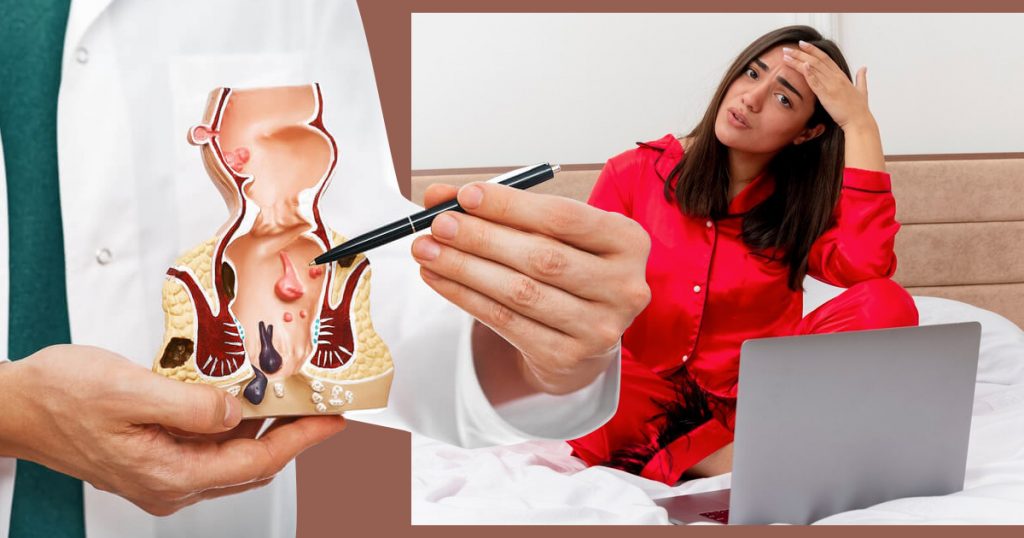Stress doesn’t just mess with your mind—it can take a toll on your body too. When stress isn’t managed, it can lead to all kinds of health problems, from trouble sleeping to more serious issues like heart disease and digestive problems. While a little stress can be normal, even helpful to keep you on your toes for things like deadlines or exams, too much stress is a problem. In fact, according to the American Psychological Association, 77% of adults say stress causes physical symptoms like headaches, fatigue, or muscle pain.
But here’s something you might not have heard—stress could even be tied to hemorrhoids. Yes, those swollen and painful lumps people don’t like to talk about. Could stress really make this uncomfortable condition worse?
Can Stress Really Cause Hemorrhoids?
Stress doesn’t directly cause hemorrhoids, but it can set off a chain reaction in your body that might lead to them or make them worse. When you’re stressed, your digestion can get thrown off. For some people, this means constipation, while others might deal with diarrhea. Both of these can increase pressure in the area around your bottom, which is one of the main reasons hemorrhoids develop.
Hemorrhoids are swollen veins inside your rectum or around your anus. If they’re inside, they’re called internal hemorrhoids, and if they’re outside, they’re known as external hemorrhoids. Internal ones are usually painless but can cause bleeding when you poop. External hemorrhoids, on the other hand, are often itchy, swollen, and tender to the touch, and they can be pretty painful at times.
Some common symptoms of hemorrhoids include:
- Bright red blood on toilet paper or in the toilet after a bowel movement
- A feeling of itching or irritation around your anus
- Swelling or a small lump near your anus
- Pain or discomfort, especially when sitting or having a bowel movement
The usual culprits behind hemorrhoids are things like straining too hard while pooping, sitting on the toilet for a long time, pregnancy, being overweight, or eating a low-fiber diet. While stress might not be one of the direct causes, it can step in and make things worse.
How does that happen? Stress can mess with your digestion. Constipation from slowed digestion can make you strain more during bowel movements, while diarrhea can irritate the area. Both of these put extra pressure on the veins in your rectum, increasing the chances of getting hemorrhoids or making existing ones flare up. Stress can also make your body tense, including the muscles around your bottom, which can add to the discomfort.
While stress might not be “the cause,” it definitely doesn’t help. That’s why managing stress isn’t just good for your mind—it’s great for your overall health.
How to Manage and Prevent Stress and Anxiety Causing Hemorrhoids
If you’re dealing with stress and hemorrhoids, don’t worry—there are simple steps you can take to manage both. With a few lifestyle changes and the right treatments, you can feel a lot better.
Lifestyle Changes to Help You Out
1. Eat More Fiber
Adding foods like fruits, veggies, and whole grains to your meals can really help your digestion. Fiber makes your poop softer and easier to pass, which means less straining. And don’t forget to drink water! Staying hydrated helps keep things moving smoothly.
2. Stay Active
Exercise is great for reducing stress and keeping your body healthy. You don’t need to overdo it—take a daily walk, do some yoga, or try light stretching. Movement helps prevent constipation and improves blood flow.
3. Relax and De-Stress
Stress management is super important. Find what works for you—maybe it’s deep breathing, journaling, or taking some quiet time to meditate. Even just a few minutes of “you time” each day can make a difference.
4. Healthy Bathroom Habits
Don’t spend too long sitting on the toilet or force yourself to go. Listen to your body. When you feel the urge to poop, try not to delay it—that can help avoid extra strain.
5. Get Enough Sleep
A good night’s rest is like hitting the reset button for your body and mind. Create a calming bedtime routine, like reading, listening to music, or drinking herbal tea, to help you relax and recharge.
Simple Treatments for Hemorrhoids
If lifestyle changes aren’t enough, there are treatments that can help with the symptoms:
1. Over-the-Counter Remedies
Creams or ointments with soothing ingredients like hydrocortisone or witch hazel can make itching and swelling less bothersome. They’re easy to find and use at home.
2. Warm Baths
Sitting in warm water (a sitz bath) for 10-15 minutes can ease irritation and make you more comfortable. This is especially soothing after a bowel movement.
3. Pain Relievers
If hemorrhoids are causing pain, over-the-counter medications like ibuprofen can help. Just follow the recommended dosage.
4. When to Talk to a Doctor
If you’ve tried these remedies but still have problems, or if you’re bleeding heavily, it’s a good idea to see a doctor. They might suggest other treatments like rubber band ligation or, in rare cases, surgery.
The Key to Health: Managing Stress
Managing stress isn’t just about avoiding hemorrhoid flare-ups—it’s about feeling better and staying healthy overall. When you keep stress in check, your body works better too. Things like improved digestion, a stronger immune system, and more energy can all come from taking care of your mental health.
The good news? You don’t need to make drastic changes overnight. Start small. Eat healthier meals, go for a walk, take time to relax, or make sure you’re getting enough sleep. These little steps can add up to big improvements over time.
Your mind and body are connected, and taking care of both doesn’t have to be hard. Each simple action you take—whether it’s taking a deep breath or going to bed earlier—helps you feel better and live a happier, healthier life. You’ve got this, one step at a time!
